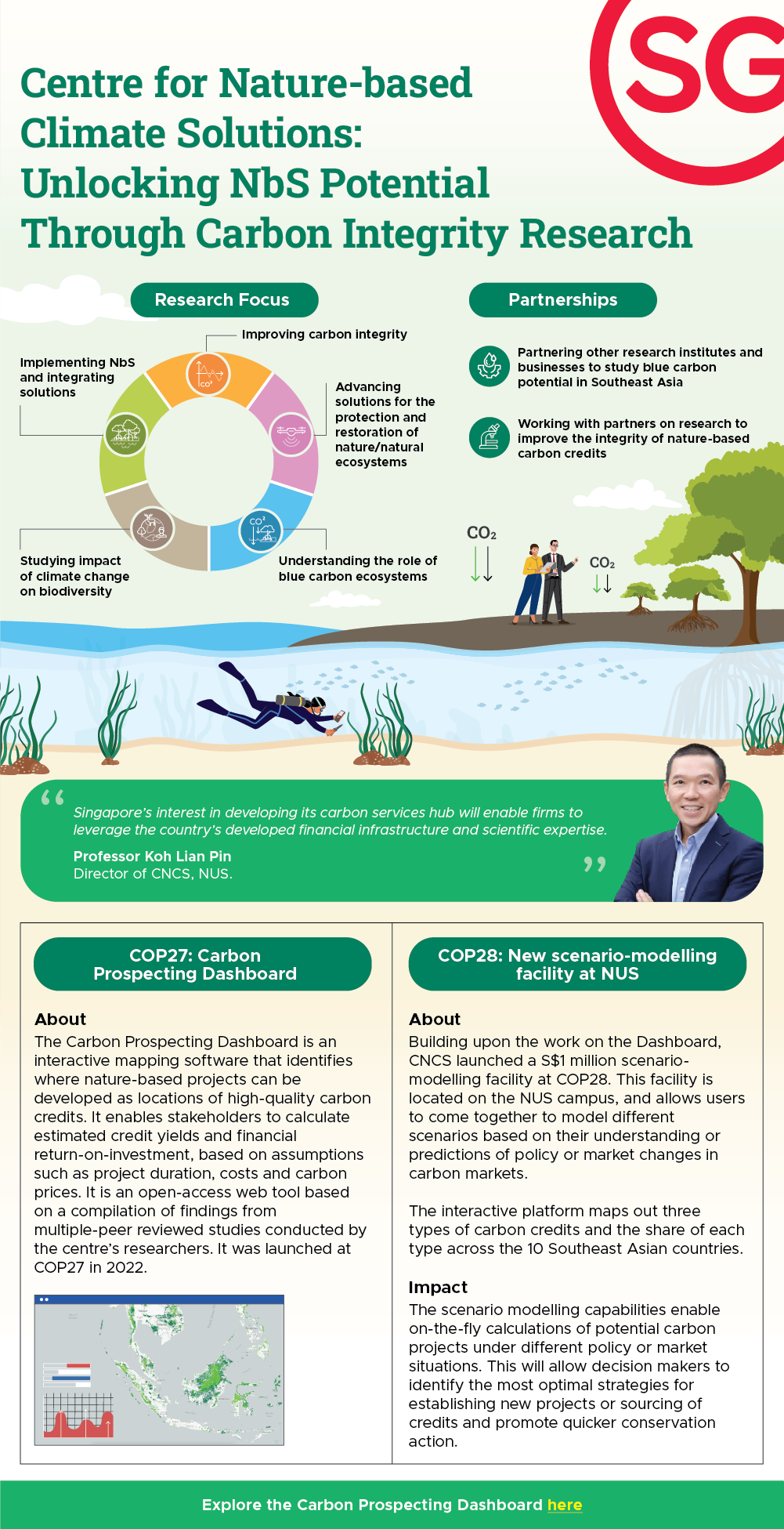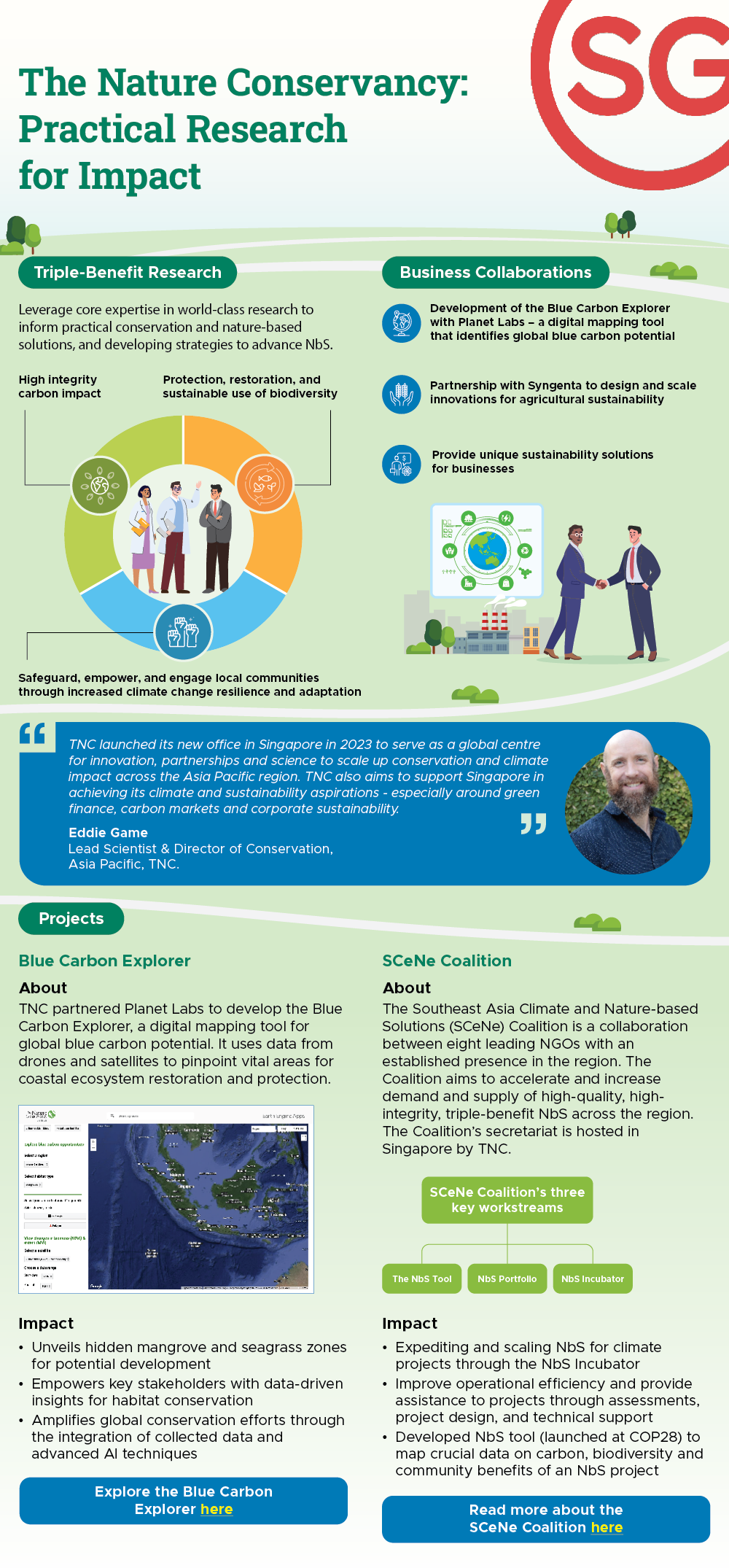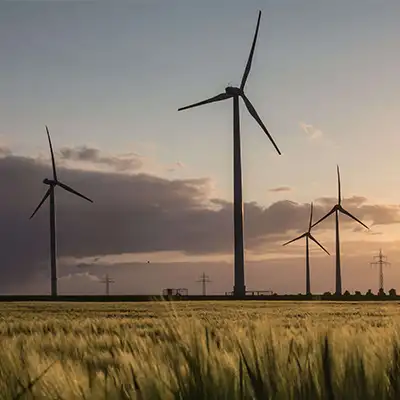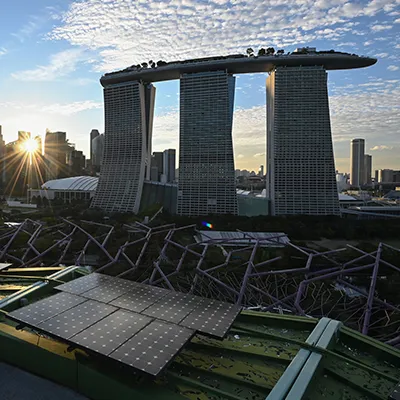As the world seeks innovative ideas to combat climate change, nature-based solutions (NbS) have emerged as promising tools in climate change mitigation. In fact, according to the World Bank, NbS has the potential to provide one-third of mitigation action needed to meet the Paris Agreement1.
In a nutshell, NbS leverage the inherent capabilities of natural ecosystems to reduce carbon emissions - and provide additional benefits such as safeguarding biodiversity and reducing impacts of climate change. For example, instead of using infrastructure such as sea walls to combat coastal flooding, trees such as mangroves can be planted in coastal areas to reduce the impact of storms and provide a habitat for biodiverse flora and fish species.
Southeast Asia’s Natural Ecosystems: A Reservoir of Potential for NbS
Southeast Asia (SEA) boasts a remarkable diversity of natural landscapes, from lush tropical rainforests to coastal wetlands and vibrant marine ecosystems with significant carbon storage potential.
The region accounts for about 25 per cent of the world's NbS supply2 – a disproportionately large share of carbon mitigation potential relative to its share of the global land area3. Across its natural assets, SEA boasts the largest blue carbon potential worldwide: SEA has 4.8 billion MgC of storage in blue carbon, which is significantly higher than its next best competitor, the Gulf of Mexico, at 0.5 billion Mg4.
Statistics reveal that SEA is estimated to hold approximately US$170 million in global benefits from ecosystem services generated through NbS projects5. The return-on-investment for natural climate solutions6 in SEA is also notably high, while also offering key biodiversity co-benefits.
These numbers highlight the vast potential of SEA to be a significant contributor in the global fight against climate change.
Addressing the Knowledge Gap: The Road to High Fidelity Carbon Credits
Amongst other benefits such as in climate adaptation and biodiversity preservation, NbS plays a key role in mitigating climate change and as a promising source of high-quality carbon credits. However, there are existing knowledge gaps that still need to be addressed. One major challenge is the lack of robust carbon accounting methodologies to estimate the carbon stocks and fluxes specifically in SEA’s natural ecosystem. This, coupled with the high costs associated with Monitoring, Reporting and Verification (MRV), adds complexity in realising the potential of credits from NbS projects.
Singapore has invested significantly in advancing scientific research in the abovementioned domains, aiming to become a centre of excellence in carbon services. At COP27 in November 2022, Singapore’s National Research Foundation and the National University of Singapore (NUS) Centre for Nature-based Climate Solutions (CNCS) launched a S$15 million five-year research project termed “Carbon Integrity SG”7. Led by the CNCS, this project brings together expert partners to develop methodologies tailored to the unique ecosystems of SEA for high fidelity credits. The National Parks Board of Singapore, which manages Singapore’s parks and nature reserves, is also leading a S$25 million Marine Climate Change Science programme that aims to advance the core sciences of marine climate change and unlock the potential of blue carbon in the region.
Two prominent organisations at the forefront of scientific research in NbS are global environmental NGO The Nature Conservancy (TNC) and the Centre for Nature-Based Climate Solutions (CNCS) at NUS. They collaborate with local and international partners to address knowledge gaps and develop technologies that support the effective implementation of NbS projects. Their research contributed significantly to the development of crucial NbS tools that were launched at COP28 in November 2023.
A Research Powerhouse: CNCS’ Collaborative Approach to Carbon Solutions and Ecosystem Restoration
A research institute that works at the interface between science and practice, CNCS proactively engages with various sectors to understand the barriers to implementing and scaling up nature-based climate solutions in Singapore and across Southeast Asia.









